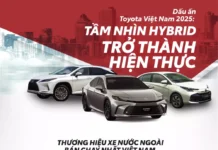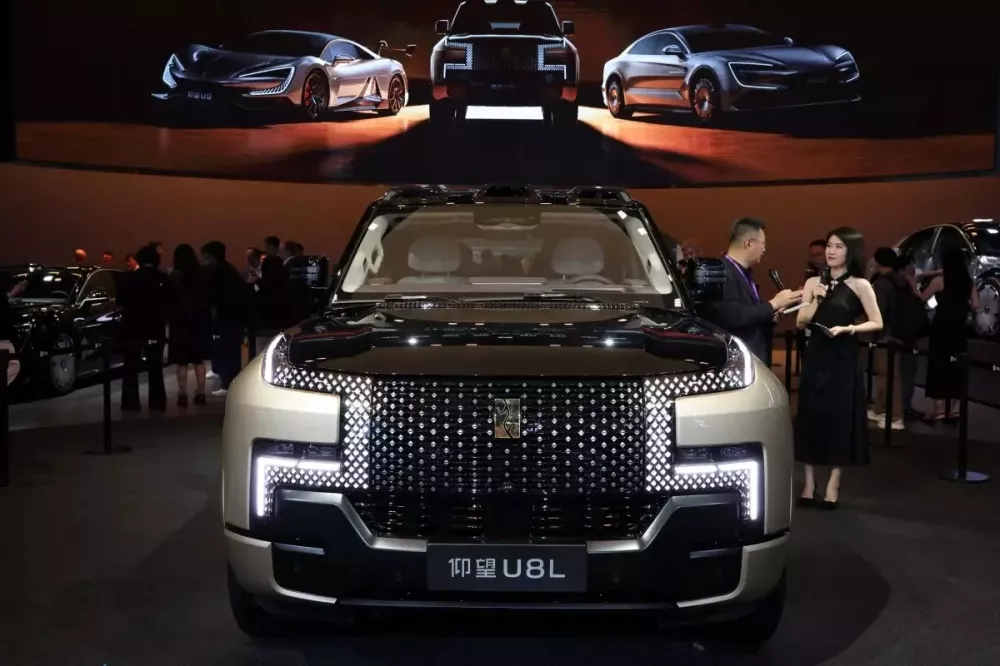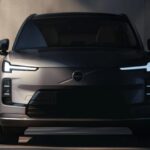Profit prospects for Chinese electric vehicle (EV) makers remain murky, as intensifying price competition in the world’s largest auto market continues to squeeze margins, according to JPMorgan Chase.
According to a recent report from the US investment bank, auto assemblers in China offered record-high average discounts of up to 16.8% in the previous month to maintain sales growth. This figure was 16.3% in March 2025. JPMorgan has been tracking car price changes in China twice a month since 2017. The average discount rate in 2024 was 8.3%, according to the China Passenger Car Association (CPCA).
This finding adds to the pessimism surrounding the financial performance of Chinese automakers this year, as most have yet to turn a profit. “Price reflects the balance between supply and demand,” said Nick Lai, head of Asia-Pacific auto research at JPMorgan. “Price competition has intensified this year. Unfortunately, we have yet to see a surge in electric vehicle demand.”
Data from JPMorgan’s report shows no signs of abating in the price war in China’s auto market, despite growing calls from the Beijing administration and industry officials to abandon this form of negative competition. The car models tracked by JPMorgan include both gasoline and electric vehicles. All-electric vehicles witnessed an average price reduction of 10% in December 2024, according to the CPCA. Cui Dongshu, secretary-general of the CPCA, said that such deep discounts are rare in the domestic market.
Among over 50 electric vehicle manufacturers in China, only 3 are known to be profitable, including BYD (the world’s largest EV manufacturer), Li Auto (Tesla’s closest competitor in China), and Seres (the producer of the smart car brand Aito). Other electric vehicle companies are grappling with high development and marketing costs, making it challenging for them to achieve substantial profit margins and ensure stable profitability.
The profit margin per vehicle is the difference between the selling price and tangible costs such as materials, labor, and imports. According to Phate Zhang, the founder of Shanghai-based electric vehicle data provider CnEVPost, the profit margins of most Chinese EV makers have dropped to around 10% in 2024, from about 20% four years ago.
“Almost all manufacturers are victims of the price war,” Zhang said. “But if any manufacturer chooses to withdraw from the price war, their sales will drop, making it more difficult to generate net profits.”
Towards the end of 2024, the four largest listed premium electric vehicle makers in China, including Nio, Xpeng, Zeekr (owned by Geely), and Leapmotor (backed by Stellantis), announced separate plans to cut losses amid fierce market competition. Analysts predict that smaller players will be forced to exit the market or be acquired by larger rivals within the next two years.
Lai, from JPMorgan, stated that robust export activity would boost profitability for Chinese electric vehicle manufacturers as their cars have higher margins in overseas markets. “The exported vehicles help most companies make good profits,” he said. “Lucrative overseas sales give them the opportunity to pursue higher profits.”
Lai added that in the first four months of 2025, electric vehicles from China accounted for 33% of the country’s total vehicle export revenue, compared to around 25% in the previous two years. In April 2025, domestically produced pure electric vehicles and plug-in hybrid electric vehicles (PHEVs) made up 38% of China’s automobile exports. Additionally, electric vehicles accounted for 43% of total car sales in China from January to April this year, up from 41% in the same period last year, according to JPMorgan’s report. The report also forecasts that Chinese electric vehicles will capture 80% of the domestic market share by 2030.
Unveiling the Electric Dream: A Ferrari Revelation
The highly anticipated debut of Ferrari’s first-ever electric vehicle is set to electrify the automotive world this autumn. The Italian supercar maker is pulling out all the stops with plans to unveil not just one but five new electric vehicles by 2025, marking a dynamic shift in the company’s offerings.
The All-New GMC Hummer EV Carbon Fiber Edition 2026: A Rugged, Off-Road Beast Unveiled
General Motors has unveiled the new Hummer EV Carbon Fiber Edition, an exceptional variant available for both the SUV and Pickup EV 3X models. This special edition showcases GMC’s commitment to innovation and style, offering a unique take on their electric vehicle lineup. With its sleek and modern design, the Hummer EV Carbon Fiber Edition is set to impress both aesthetically and performance-wise.
VinFast Teases New Electric Small Delivery Vehicle Ahead of Its Official Unveiling Tomorrow
The arrival of the new truck model will enrich the VinFast-branded product portfolio in the Vietnamese market. This addition to the VinFast lineup is a testament to their commitment to offering diverse and innovative solutions to meet the varying needs of their customers. With this expansion, VinFast reinforces its position as a leading automotive brand in Vietnam, catering to a wider range of consumers with their ever-evolving preferences.
The All-New Volvo XC70: A Strategic Step in the Brand’s Electrification Journey
Volvo has unveiled its brand-new XC70 SUV, a groundbreaking vehicle that marks a significant step forward in the company’s electric vehicle strategy. This revolutionary SUV is Volvo’s first-ever plug-in hybrid electric vehicle (RE-PHEV), showcasing the brand’s commitment to innovation and sustainability.












































